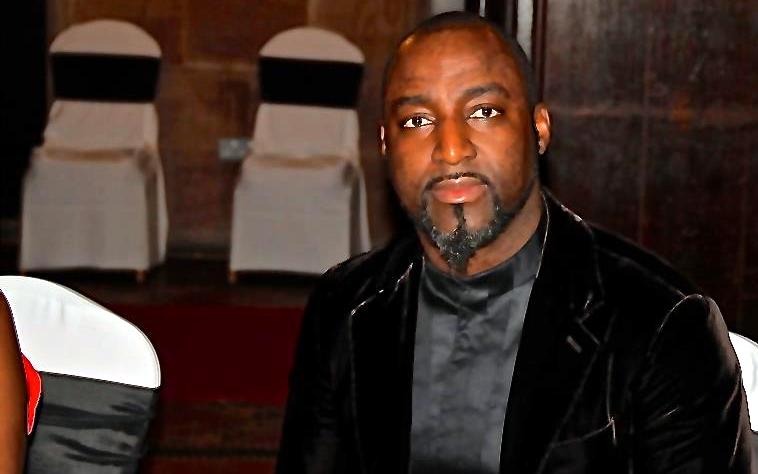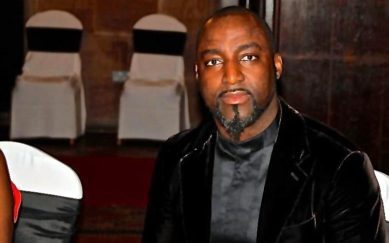National Issues
Nigeria at 55: Investing in Our people -By Adewale Ajadi


Adewale Ajadi
Now the that the President has sent the list of his ministerial nominees to the Senate for screening, the hysteria that is the habit of the political elite and their media enablers might reduce to a more tolerable level, at least one may hope so. In the midst of this daily hyperventilation, the kinds of discussion of policy and strategy that would determine the organising framework of these ministers has taken a back seat. Of course, once the list comes out the inevitable discuss of which ethnic nationality is excluded or included and especially how many so called Northerners or even Muslims are in the Cabinet, compared to the others will be the next hysteria. The Nigerian elite has thrived always on the a selfish and venal agenda. It does not matter their ethnic nationality, their interest is exactly the same – to perpetuate their hegemony over this land and ensure that their children continue that dominance. Never mind that many of them represent the casino opportunities that passes as meritocracy in our time. This is part of a long tradition that goes back as far as our our documented history.
Even what passes as history has never been the story of the people who we now call Nigerians but the myths of those who divided, tagged and manipulated them using the power to give them different names; these people called the roaming elites are the ones who turned brothers, sisters, neighbours, kith and kin into so called ‘tribes’ and ‘ethnicities’ in spite of their proximity, geography and etymology. The consequence today is in the daily bigotry that imprisons the mind of many where every minuscule of difference is used to dehumanise and dislocate the other. The current inheritors of this mantle, the Nigerian elite, sell us into a different form of slavery and exploitation using their position of privilege and power to brutalise the working Nigeria and feed them others to blame. Their shortsighted manipulation forgets that unlike their ancestors and fathers, the asymmetry of information that the old elite maintain through their cults and secret societies is fast disappearing. The dynamic of the Nigerian elite in a world where information is available to everyone is on a sure pathway to a major uprising which will make the chaotic outcome of Libya look like a afternoon tea party.
For the next 50 years and much more into the future, the Nigerian population is predicted to grow at a phenomenal rate. We are expected in 2050 years to surpass the population of the United States, and in the next 100 years to be the third most populated country in the world. We cannot and will not organise and develop our country for this future with the thinking that this few greedy people who constitute our national elite have. We must go beyond intelligence of the few to the wisdom of the multitudes. Nothing we have designed or applied our minds to today, other than our religiosity, suggest that we are indeed capable of becoming a prosperous nation based on our current thinking and policies. This must change fundamentally. Currently we are a country bogged down in the wrongs of the past and the limitations of our current system. We must become a country that is obsessed by the future, seeing it with clarity and purpose.
The philosophy has to be to build the capacity of all Nigerians to be productive, competitive and exemplary in this century and beyond. We invest billions in the failed attempt to build roads, buildings, bridges and this seems just vanity if we have not developed our people so that they can find new solutions, effectively use and design, as well as develop solutions of tomorrow.
Let me suggest that our current government should lead us into a national conversation about a 100-year agenda. I would like to propose that by 2115 we will should have spent 15 years in the top five countries in the world, in the number of people who produce ideas, craft and products. This will be captured in the number of patents, copyrights, products we register. The brand made-in-Nigeria will be in the top three most celebrated brands in the world, from at least 2005. To get to this future we must transform through improving the quality and capacity of the Nigerian by releasing and re-realising their genius. It simply must start now and under this administration under which they have so much hope and expectation.
This government must be the first to genuinely bypass the Nigerian elite with an open and transparent love for the working Nigerian and their possibility. It must lead with a new philosophy at its heart that development and prosperity is primarily about the condition of our people, not about material or external infrastructure. The philosophy has to be to build the capacity of all Nigerians to be productive, competitive and exemplary in this century and beyond. We invest billions in the failed attempt to build roads, buildings, bridges and this seems just vanity if we have not developed our people so that they can find new solutions, effectively use and design, as well as develop solutions of tomorrow. For those who will ask: do you mean stopping investments in electricity et al; well we are focussed on those yes, but without the millions of people capable of using this facilities productively, you just have consumers.
Unfortunately wherever you are and work in Nigeria, the quality of effort, contribution and capacity is poor compared to any meaningful competition. The Philosophy of prioritising the capacity of our people to be competitive will mean at least a 50-year people plan. It will mean the fact that most Nigerians who are under the age of 35 will be recognised as the countries greatest asset and as such get all the care, concern and contribution given to the children of the elites. It would mean whomever your parents are and however their circumstances may be you are ‘our Children’. It would mean every Nigerian child is guaranteed education in the first 16 years with credible access to learning and development through their lives. The current situation is clearly designed around certification and celebration of the minority who have the luck, savvy and support to achieve university education. The mass majority achieving struggle in the space of basic literacy. This is not the design of a 21st century powerhouse.
It should also be possible to create an adaptive learning environment where there is no age limit to starting on a new competency and capacity. The potential for hardware and software development, the distinctive possibility that the data generated will raise, the knowledge production that will drive this process will not only transform our society but will fully evolve a national culture of excellence fit especially for the 21st Century.
Recently one of my neighbours in a gated community in Lekki brought home his idea of a ‘Mai guard’ – a boy of no more than 15 years old. My heart broke for this Chibok boy fronting as if he was a man. I tried to talk to him, watching as he was sequestered in something that is little more cramped than the worst Nigerian prison. I have been through this before, my adopted son Musa is himself Chibok and got engaged in my former home by my Landlord as a Mai guard when he was 17. Over the years this quite incredible person with so much honour and dignity than friends who rule this country expressed himself with incredible intelligence and clarity that is like of formal education is a travesty. In the seven years he has become my friend, body man, as well as teacher. Yet he never got whatever it is we give in our schools. He has far more than any other employees I have had in Nigeria, many of whom have Masters degrees from international universities. Now a father, we are looking at how his capacity, competencies and life skills should initially be assessed and furthermore accredited before being updated. I am sure some kind of access to view the range of career possibilities and explore how he can develop his ability towards his dreams is critical. However our system offers no solution. For our country and our tomorrow, every child must be a potential and promise, a down payment on our future. It must not be possible for anyone to recruit a child of under 16 without a process of getting them certified into a particular competency. Therein lies the challenge, moving beyond the indoctrination and certification that passes as education so that each child starts life as a promise to this country and by year 16 become a possibility across the spectrum of human endeavour.
At the foundation of this promise is the need for our country to stop ‘flaring’ information but harness it properly as a tool to drive this human investment agenda. First, all children born into Nigeria should be registered through biometrics, with their vital details including genotype recorded. This should be a baseline of ensuring the first 16 years of life our society is the ‘village’ that will bring them up. It also means that from the earliest age, children will have nursery care irrespective of who their parents are and what they do. There should be benefits for poor parents who participate as well as consequences for those who refuse. This will all be under a designed curriculum of life time learning that is based on regular review of the long term needs of society, the medium term trends of our competitive requirements and the short term skill gaps and labour force demands. Part of this will be a parity of esteem and recognition between the different types of competencies from craft, vocation, professional and academic, as well as comparative remuneration. It also must inevitably rescue education from classrooms and the limitation of schools towards using all enabling technology to make learning happen in all places, including our markets and in transit. It should also be possible to create an adaptive learning environment where there is no age limit to starting on a new competency and capacity. The potential for hardware and software development, the distinctive possibility that the data generated will raise, the knowledge production that will drive this process will not only transform our society but will fully evolve a national culture of excellence fit especially for the 21st Century.
No matter who becomes minister if we do not focus on investing our people and making the development of majority of our people not just an object of love but the subject of governance then ours is an incredible enterprise unlikely to reach its full potential.
2065, which is 50 years from now, we will not only have a nation driven by the pursuit of personal development but the foundation of a grundnorm of problem solving as the way to success. We will possibly truly render the definition of leapfrogging. The momentum that might have been lost in the development of physical infrastructure will be exceeded by engineers who can have original contextual ideas working side by side with design thinkers and a cadre of managers, as well as organisation development people who will ensure sustainability towards our dream nation. There will be a citizenry who are not only special because they won some form of life lottery but who are imbued with gratitude and commitment to a country who put their development ahead of instant gratification.
Our current trajectory has been exemplified by the pathologies of greater and increased resentment yet to coalesce around a mass movement. The venality and abuse of daily power that brutalise people, especially our women, even amongst those who win within our limited framework of success. No matter who becomes minister if we do not focus on investing our people and making the development of majority of our people not just an object of love but the subject of governance then ours is an incredible enterprise unlikely to reach its full potential. On the other hand, with the promise of free education, free school meals there is a genuine recognition in this administration that there is genuine need here. Mr. President and his team, however, must become bigger and bolder towards this; there should be no half-stepping or distractions in showing love for our people by investing in them.
Adewale Ajadi, a lawyer, creative consultant and leadership expert, is author of Omoluwabi 2.0: A Code of Transformation in 21st Century Nigeria.




















